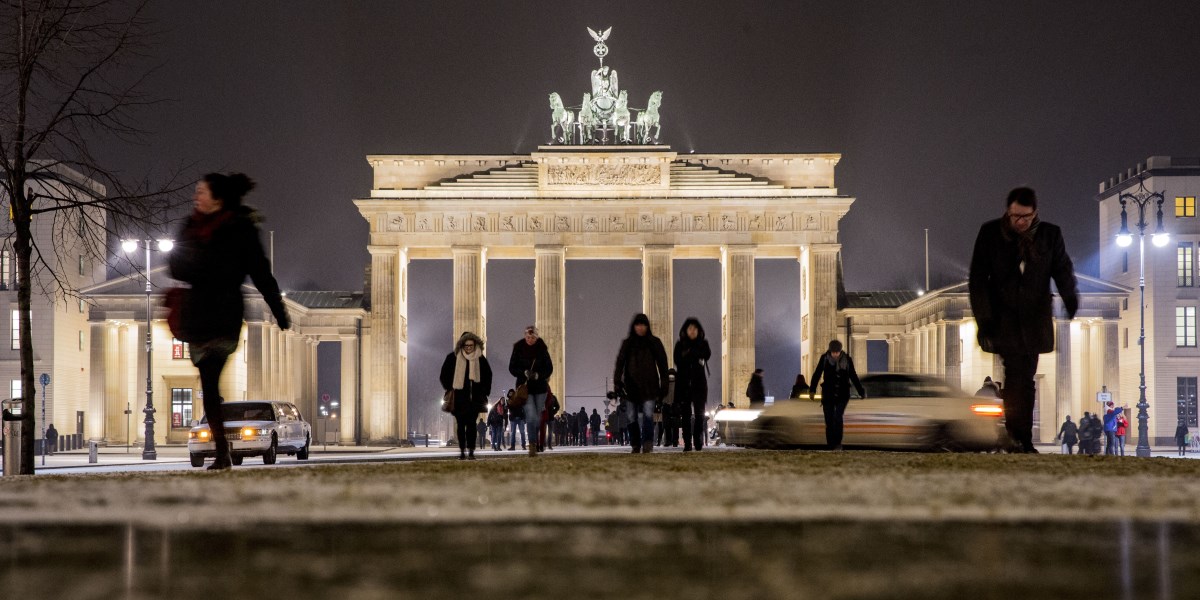
Expecting Berlin's support in fight against terrorism
Turkey's expectations from Germany are very clear: To support Turkey in its fight against terrorism, and to end its support to the terror groups fighting against Turkey. Let us leave aside the Revolutionary People's Liberation Party-Front (DHKP-C) and even the Gülenist Terror Group (FETÖ) and speak only of the PKK.
Share
he recent release of German national Peter Steudtner, who was detained in Turkey, had resulted in a positive outlook by the German public toward Turkey. However, it did not last very long and this encouraging development dissipated quickly. Germany's anti-Turkish lobby tried to obstruct the normalization of Turkish-German relations, immediately bringing forward the other German citizens who remain incarcerated, martial law in Turkey, and the so-called harsh security measures taken by Turkey.
It was alleged that this release was not done on legal grounds but for political purposes. According to this claim, just as the arrests of these people were political, so was their release. In fact, within this framework, the mediation of the previous German chancellor, Gerhard Schröder, was brought forward. Apparently, Schröder had called President Recep Tayyip Erdoğan asking for these people to be released, and Erdoğan was unable to say no to Schröder so he took this step.
A journalist friend of mine asked this question to the president on a return trip from Azerbaijan, where we had gone for the opening ceremony of the Baku-Tbilisi-Kars (BTK) Railway. President Erdoğan answered the question as follows, "Schröder is a friend of mine with whom I have always had good relations and solidarity since his chancellor days. We talked about how Turkish-German relations are and how they can be improved, and what steps must be taken in order to accomplish this […] It is extremely ugly for such lies to be brought forward about a conversation I had with an old friend. Turkey is a constitutional state. The judiciary directs all things related to cases including objections, and follows the requirements of the law. In any case, we saw that in the case you mentioned, the decision was for the suspect to be released - it was not an acquittal. We cannot know how the case will turn out."
Turkish-German relations being reduced to the matter of the incarceration of some German citizens appears before us as the extension of a strategic preference. This strategic preference is the product of the anti-Turkish lobby in Berlin, formed by those, who for political reasons, had to leave Turkey. This might be a success for them, but whether it is a success for Germany is quite debatable.
Turkey's expectations from Germany are very clear: To support Turkey in its fight against terrorism, and to end its support to the terror groups fighting against Turkey. Let us leave aside the Revolutionary People's Liberation Party-Front (DHKP-C) and even the Gülenist Terror Group (FETÖ) and speak only of the PKK.
1. Turkey wants Germany to inspect the institutions connected to the outlawed PKK. Within this framework, Turkey wants the obstruction of these groups' activities and their recruitment of personnel and finances.
2. Another expectation by Turkey is for Germany to block the activities of PKK camps.
3. The prevention of PKK members and sympathizers from carrying symbols belonging to the PKK terrorist organization at protests organized in Germany and thus to stop them from praising the terror organization.
4. The prevention of the TV, radio and social media activities engaged by the PKK where they praise terror and violence, and to disallow these media organizations.
5. The obstruction of the PKK terrorist organization gathering donations, tributes, contributions, or money under the guise of financial campaigns and preventing this money from being transferred to Syria or Iraq.
6. The freezing of PKK members' assets under the U.N. Security Council Resolution 1373. As will be remembered, Turkey demanded that the assets of 16 and then 37 members of the PKK be frozen in 2016 and 2017, respectively.
7. Responding to the requests of the extradition of terrorists.
8. Actualizing the partnership as foreseen by the aims of the Agreement on Fighting Against Terrorism Memorandum signed by Turkey and Germany.
These are just Turkey's expectations from Germany on the matter of fighting the PKK. These expectations are not unreasonable or far-out expectations. Instead, they are extremely concrete ones. Not only that, they are vital expectations. Other terrorist formations in Germany must also be added to these. Just today, as I was writing this piece, many foreign Daesh fighters were arrested in Turkey.
Nearly every day, Turkish authorities dismantle a Daesh cell that has been formed inside its borders and continues to catch fighters who escaped from Syria. Turkey is not following a one-sided anti-terrorism strategy. More importantly, it is not using these terror organizations as a manipulative device. The normalization of Turkish-German relations depends above all on supporting Turkey's fight against terrorism.
[Daily Sabah, 3 November 2017]
Tags »
Related Articles







